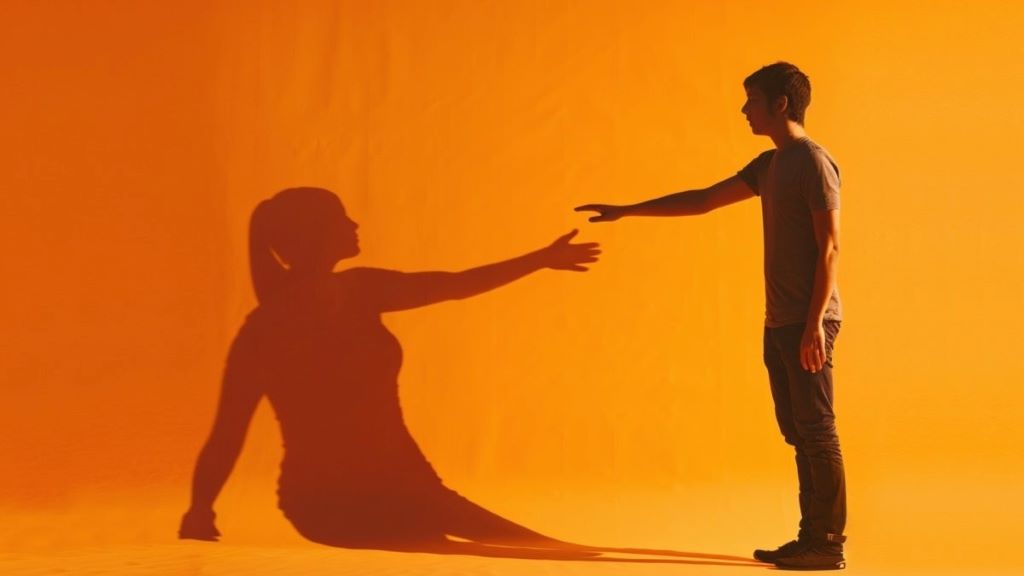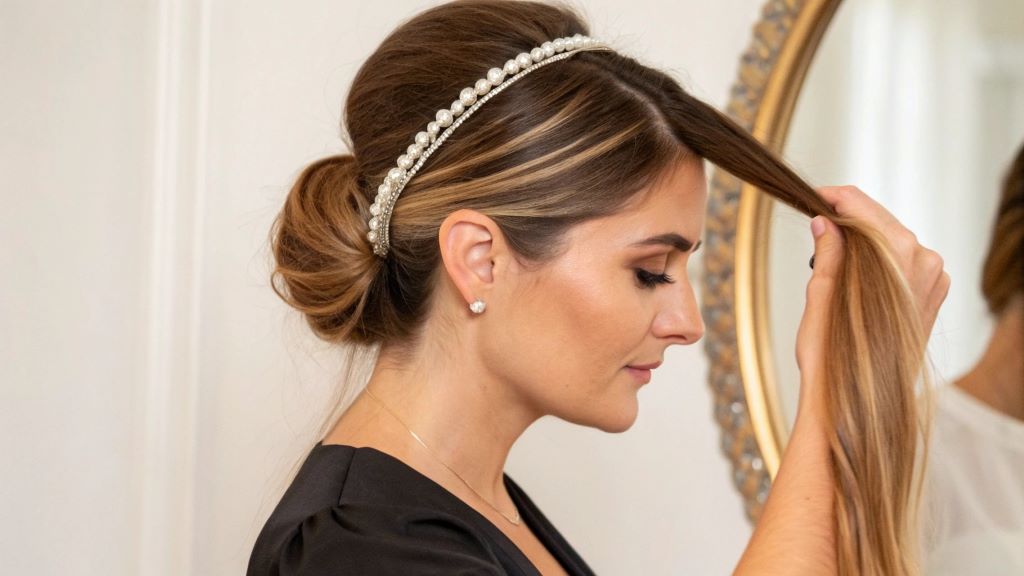Laughter is a universal human response, often associated with joy or humor. However, it can sometimes emerge in the most unexpected situations, such as during serious or somber moments. This puzzling behavior has intrigued psychologists, researchers, and everyday observers alike. Why do some people giggle at a funeral, chuckle during a tense meeting, or laugh when faced with distressing news? The reasons behind this phenomenon are rooted in a complex mix of psychological, social, and physiological factors. At Myself Improvement Today, we explore the intricacies of human behavior to uncover why laughter can surface at the most inopportune times.
The Psychology Behind Inappropriate Laughter
Laughter during serious moments is often labeled as “inappropriate,” but this term can oversimplify a natural human response. Psychologists suggest that such laughter is typically involuntary and serves as a coping mechanism. When faced with overwhelming emotions like grief, anxiety, or fear, the brain may trigger laughter as a way to regulate stress. This response is tied to the body’s attempt to restore emotional balance, a process known as homeostasis. For instance, nervous laughter might occur when someone feels uncomfortable or anxious, acting as a release valve for pent-up emotions.
Additionally, laughter can stem from cognitive dissonance, where the mind struggles to process conflicting emotions. For example, during a funeral, a person might laugh because the sadness feels too intense, and their brain seeks a lighter emotion to counterbalance it. This interplay of emotions highlights the complexity of different types of behaviors, which often manifest in unexpected ways under pressure. Understanding these behaviors helps explain why laughter can emerge in moments of tension or sorrow.
The Role of Social and Cultural Influences
Social settings and cultural norms also shape when and why people laugh in serious situations. In some cultures, laughter during a solemn event might be seen as disrespectful, while in others, it could be a socially accepted way to express discomfort or diffuse tension. For example, in certain Asian cultures, nervous laughter is sometimes used to mask embarrassment or maintain harmony in awkward situations. These cultural differences influence how laughter is perceived and expressed.
Moreover, social dynamics play a significant role. Laughter can be contagious, spreading through a group even in serious contexts. If one person giggles during a tense moment, others may follow, driven by a subconscious need to align with the group. This phenomenon, often called social mirroring, is explored in depth by sources like Psychology Today, which notes that laughter can strengthen social bonds, even unintentionally. However, this can lead to misunderstandings, as others may misinterpret the laughter as insensitivity.
Physiological Triggers of Laughter
The human body’s physiology also contributes to laughter in serious moments. The autonomic nervous system, which regulates involuntary responses like heart rate and breathing, can prompt laughter as a reaction to stress. When the body perceives a threat—whether emotional or physical—it activates the fight-or-flight response. Laughter, in this case, serves as a release of nervous energy, helping to calm the body.
Furthermore, the brain’s reward system plays a role. Laughter triggers the release of dopamine, a feel-good chemical that can temporarily alleviate discomfort. This explains why some people laugh when they hear shocking news—it’s the brain’s attempt to find relief. Studies, such as those reported by Scientific American, suggest that this response is hardwired, making it difficult to suppress even in inappropriate settings.
Common Triggers for Laughter in Serious Moments
Several specific situations can prompt laughter during serious moments. Recognizing these triggers can help individuals better understand their reactions and those of others. Some common triggers include:
- Emotional Overload: Intense emotions, such as grief or anxiety, can overwhelm the brain, leading to laughter as a coping mechanism.
- Surprise or Shock: Unexpected events, like sudden bad news, can cause a nervous laugh as the brain processes the information.
- Social Awkwardness: In uncomfortable social situations, laughter may emerge as a way to ease tension or avoid conflict.
- Relief: After a moment of high stress, such as narrowly avoiding danger, laughter can signal relief and a return to safety.
- Incongruity: When something seems out of place, like a humorous memory during a serious event, the brain may respond with laughter.
These triggers show that laughter in serious moments is often less about humor and more about navigating complex emotional landscapes.

The Role of Personality Traits
Personality also influences who is more likely to laugh during serious moments. People with high levels of neuroticism, a trait linked to emotional instability, may be more prone to nervous laughter due to heightened anxiety. Conversely, individuals with a strong sense of humor or those who are more emotionally resilient may laugh as a way to reframe a serious situation positively.
Additionally, people with conditions like pseudobulbar affect (PBA), a neurological disorder, may experience uncontrollable laughter or crying in inappropriate contexts. While rare, PBA underscores how brain function can drive these behaviors. Understanding these personality-driven responses can foster empathy, as what seems like inappropriate laughter may reflect an individual’s unique emotional processing.
How to Manage Inappropriate Laughter
For those who find themselves laughing at the wrong time, there are strategies to manage this response. First, acknowledging the behavior without judgment is key. Recognizing that laughter is often involuntary can reduce feelings of guilt or embarrassment. Taking slow, deep breaths can help calm the nervous system and reduce the urge to laugh. Redirecting attention to a neutral thought or focusing on the seriousness of the moment can also help.
In social settings, explaining the laughter afterward, if appropriate, can clarify intentions and prevent misunderstandings. For example, saying, “I’m sorry, I laugh when I’m nervous,” can diffuse potential offense. Over time, practicing mindfulness techniques, such as meditation, can improve emotional regulation and reduce involuntary responses.
Why Understanding This Matters
Recognizing why people laugh during serious moments fosters greater empathy and reduces judgment. Instead of viewing such laughter as disrespectful, we can see it as a natural human response to stress, discomfort, or emotional overload. This understanding can improve communication in personal and professional settings, helping us navigate tense situations with compassion.
Moreover, exploring these behaviors sheds light on the broader spectrum of human emotions and reactions. It reminds us that our responses are shaped by a mix of biology, psychology, and culture, making each person’s experience unique. By studying these patterns, we can better appreciate the complexity of human behavior and support one another in challenging moments.
Conclusion
Laughter during serious moments is a multifaceted phenomenon driven by psychological, physiological, and social factors. From serving as a coping mechanism for emotional overload to reflecting cultural norms or personality traits, this behavior reveals the intricate ways humans process complex situations. By understanding the triggers—such as stress, surprise, or social dynamics—we can approach these moments with empathy rather than judgment. Whether it’s nervous laughter at a funeral or a giggle during a tense meeting, these responses highlight the diverse ways our brains navigate discomfort. Ultimately, recognizing the roots of inappropriate laughter helps us foster connection and understanding in even the most serious circumstances.
Frequently Asked Questions
Why do I laugh when I’m nervous?
Nervous laughter is a common response to stress or anxiety. It occurs when your brain releases nervous energy to cope with overwhelming emotions, helping to restore emotional balance.
Is it normal to laugh at a funeral?
Yes, laughing at a funeral is more common than you might think. It’s often a way to process grief or discomfort, as the brain seeks to counter intense sadness with a lighter emotion.
Can laughter in serious moments be controlled?
While involuntary laughter can be challenging to control, techniques like deep breathing, mindfulness, or redirecting your focus can help manage the response over time.
Does culture affect inappropriate laughter?
Absolutely. Cultural norms shape how laughter is perceived and expressed. In some cultures, laughter in serious moments is a way to diffuse tension, while in others, it may be seen as disrespectful.
Could inappropriate laughter be a sign of a medical condition?
In rare cases, uncontrollable laughter during serious moments could indicate a condition like pseudobulbar affect (PBA). If this occurs frequently, consulting a healthcare professional is recommended.
Read More:
College Life Survival Tips for Incoming Freshman



